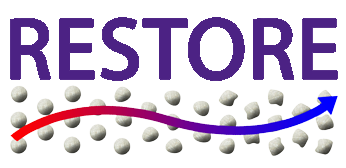Brian Harrison
Evaluating the effectiveness of smoldering (STAR) remediation of PFAS-contaminated soils and GAC at increasing scales.
Per- and polyfluoroalkyl substances (PFAS) are a group of manmade chemicals used for a wide variety of consumer and industrial applications, including waterproof clothing, cookware and firefighting foams. The properties that make PFAS so useful in these applications also make them extremely persistent in the environment, wildlife, and humans. Recent studies have linked elevated levels of PFAS compounds in humans to several negative health effects, leading to increased interest in possible methods of environmental remediation. Many conventional methods of treatment have proven to be largely ineffective at removing PFAS compounds from soil and water matrices. One method of treatment that has shown promise is the application of smouldering (STAR) remediation to contaminated soil and granular activated carbon (GAC). This technology uses a one-time input of energy to smoulder the soil and GAC at high temperatures, yielding a low-cost, energy efficient process. sThe proposed research will explore the processes at play during the smoldering of PFAS compounds to better characterize and control emissions produced during the STAR process, as well as explore how soil heterogeneity influences the efficacy of STAR. Attempts to replicate initial proof-of-concept concept tests at intermediate and full-scale tests will also be conducted.
Personal Background
Brian graduated from Western University in May 2019 with a degree in Civil and Environmental Engineering with an International Development Option. Under the supervision of Dr. Jason Gerhard, Brian began his Master's degree in September of 2019.



